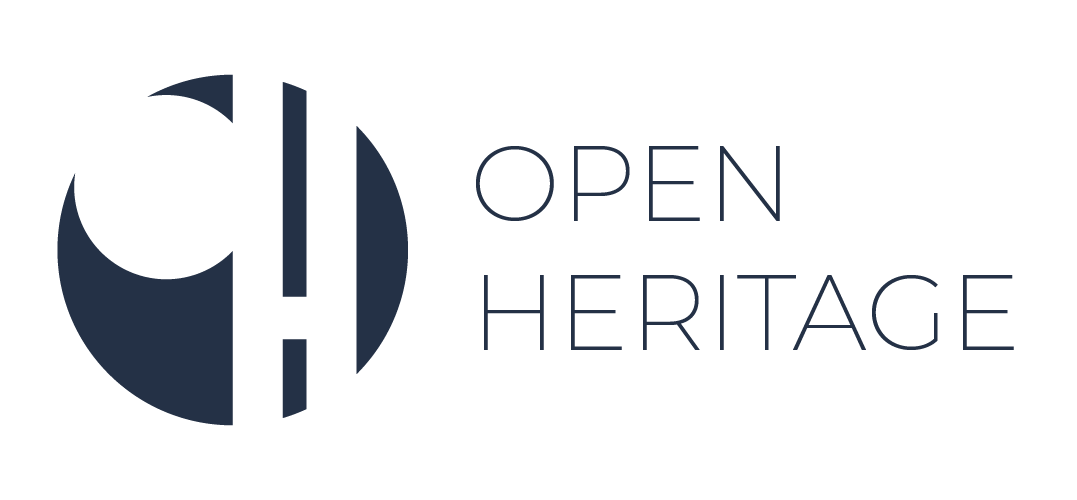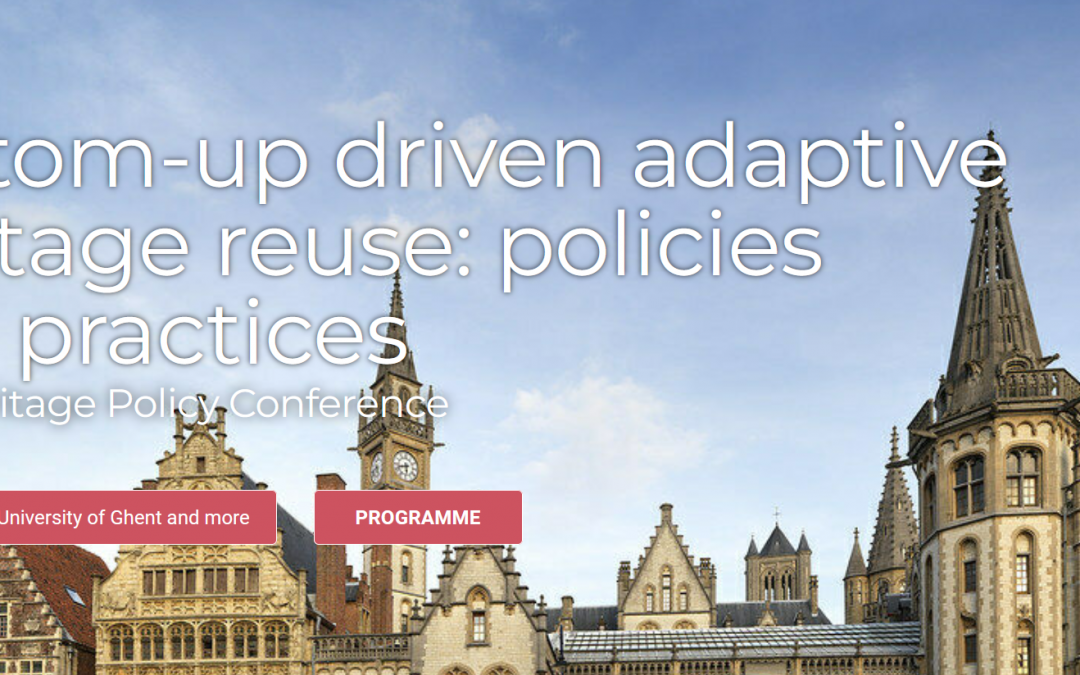17-18 May 2022 | Ghent & online streaming
Click here to register for the OpenHeritage Policy Conference.
OpenHeritage and the University of Ghent organise a Policy Conference that will zoom in on “Bottom-up driven adaptive heritage reuse: policies and practices”. The one-day event will focus on providing a multi-faceted understanding of different policies that can support bottom-up initiatives in pursuing adaptive reuse processes. It will introduce and provide a framework for discussion in various aspects of policy provisions, concentrating on the topics of inclusive business models, partnership options and the economic role of SMEs in this process. Additionally, leveraging the learning of OpenHeritage, it will provide input for EU and national policy makers about the opportunities in policymaking.
The event will take place in Ghent, with the possibility to join online. Check out the event’s agenda!
The conference will kick off with a session “Changing heritage governance” focusing on locally-driven heritage management and new governance mechanisms. The discussion will summarize the main vehicles of change and the mechanisms behind them.
We will then continue with the panel discussion “Understanding each other: Municipalities and bottom-up initiatives. Showcasing ways of cooperation” with city representatives from Ghent, Lison and Rome and bottom-up initiatives from the UK, Spain, and Belgium. The panellists will talk about different collaboration opportunities that can result in mutual benefits. The discussion will be facilitated by Levente Polyák and Daniella Patti from Eutropian.
The discussion will be followed by a practical workshop on “Inclusive business models for adaptive reuse” organised by Rolf Novy Huy from Stiftung Trias and Joep de Roo from Eurodite. During the session we will try to find answers for the questions: How inclusiveness can be carried out in practice? And what kind of implications does it have for the community?
Afterwards participants will be invited to select and participate in one of the two parallel workshops:
- Formal and informal partnerships, moderated by Hanna Szemző and Andrea Tönkő, Metropolitan Research Institute
- The role of SMEs in adaptive reuse, moderated by Hanne van Gils, Ghent University
The first workshop will focus on understanding the “nuts and bolts” of cooperation between partnerships of various institutional degrees. Can they be operational, are their small tricks to employ or traps to avoid? Drawing on Urbact’s REFILL experience as well the work of ACT in Rome and the Pomáz heritage site in Hungary, a discussion and exchange of ideas is foreseen, involving all participants.
The second workshop will analyse the possible roles SMEs can have in supporting/accelerating adaptive heritage reuse processes. It will do so through enlarging the usual economic perspective, putting the circular economy and environmental principles into the centre of attention. The panellists are Pietro Elisei (Urbasofia), Miss Miyagi Placemaking, and the Praga Lab in Warsaw.
The final agenda point of the OpenHeritage Policy Conference will be the “Policy reflection – policy implications on an EU and national level” which will bring together the EU policy officers and the regional experts like the representative from the Flanders Heritage Agency. The panel will focus on the EU level, and flesh out futures and concrete applications and implementations for the OpenHeritage experiences and learnings in the context of EU funding, programmes, and policies. The session will be moderated by Loes Velpaus from Newcastle University.
Make sure to reserve your spot and register now!

